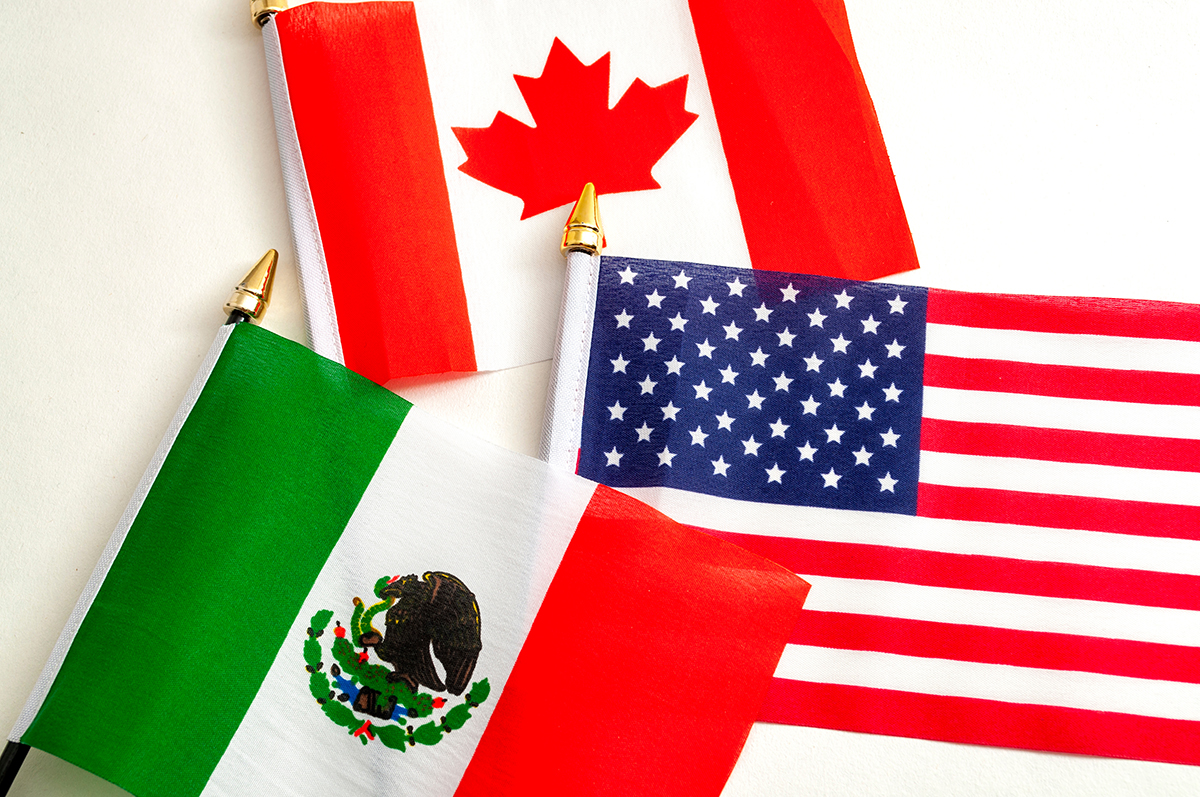MONTREAL— President Donald Trump's on-again, off-again tariff threats — as well as talk of making Canada the “51st state” — have sparked a fierce sense of nationalism among Canadian consumers, the majority of whom are eschewing fresh produce from America in favor of locally grown and imports from anywhere other than the U.S.
Canadian supermarkets seeking to meet consumer demand are building big displays of Canadian-grown produce, a theme that was evident at the four supermarkets on a Canadian Produce Marketing Association retail tour April 8, just prior to its annual convention and trade show.

“If we put a Canadian flag in a display, it sells out immediately,” said a produce team member at a Provigo store on the tour.
Talk of tariffs and the impact to the produce industry was also top of mind on the show floor, where scores of Canadian produce suppliers, including Highline Mushrooms, Sun Grape, Up Vertical Farms and others, introduced new packaging with a maple leaf and callouts to “Canadian grown” and “Canadian owned.”
“Canadians have been united in a way I don't remember in my lifetime,” Jennie Coleman, president of fair trade banana company Equifruit, told The Packer.
“I worry about the damage done to U.S. brands,” she added. “We're all selling great products that are good for us. It's not about the growers; it's that U.S. brands have lost so much standing in the Canadian consumer's mind.”
It was a sentiment echoed by Les Mallard, vice president sales of Fyffes North America Inc., who received CPMA's 2025 Lifetime Achievement Award. During a fireside chat to discuss his decades-long career in the produce industry, he expressed concern that the tariff threat backlash could ultimately result in people consuming less produce.
Canadian-grown opportunity
While the trade wars have presented fresh challenges for U.S. grower-packer-shippers, some Canadian growers, like Up Vertical Farms in Pitt Meadows, British Columbia, have experienced rapid and dramatic growth.

“We've seen a tremendous amount of growth, but it's bittersweet,” Up Vertical Farms CEO Bahram Rashti said from the Oppy booth at CPMA. “There's definitely been a shift in the market dynamic. [Canadian] consumers are getting their voices heard through their spend at the till.”
In February, Rashti told Global News that Up Vertical Farms was struggling to get its salad kits and lettuce blends into the major Canadian grocery chains, a challenge it feared might impact the vertical farmer's ability to remain in business.
By early April, all of that had changed.
While before the trade war, Up Vertical Farm's salads were carried by fewer than 10 Canadian grocery brands, now 22 Canadian retailers sell its blends and kits.
“We've seen a tremendous shift in growth, sales of our salad kits and blends have picked up like crazy, and our products keep selling out,” Rashti told The Packer.
Up Vertical Farms uses a modular operations facility, which Rashti explained will allow the vertical farmer to quickly scale its operations. He says the company plans to double its operations, growing and processing facilities in a year's time to meet heightened demand.
But Up Vertical Farms products are not only in demand because they're an alternative [to American salads], Rashti says. “It's a superior product,” he said. The company is currently revamping its salad kits to be even more “chef inspired.”
“We're working with a chef to offer salad kits that mimic what you'd get in a restaurant and give consumers more of what they want,” he said.
Mexico and Canada unite
Trade wars may also serve to strengthen the relationship between Canada and Mexico trading partners.
In the Mexico pavilion at CPMA, Divine Flavor Chief Marketing Officer Alán Aguirre Camou said, “Tariffs have created new opportunity for Canada and Mexico to team up.”

The produce industry has always been dependent on each other in North America, and historically Mexico and the U.S. have been strong trading partners, but in the last 20 years Mexico has really engaged with the Canadian market, he said.
“Tariffs are opening doors for Mexican and Canadian companies across the supply chain — from seeds to fruits and vegetables,” he said.
Of the shift in trading power, Aguirre Camou said, “Sadly, it's become like the [video] game Age of Empires.”
Your next read: Majority of Canadian consumers not buying U.S. produce right now, says CPMA

